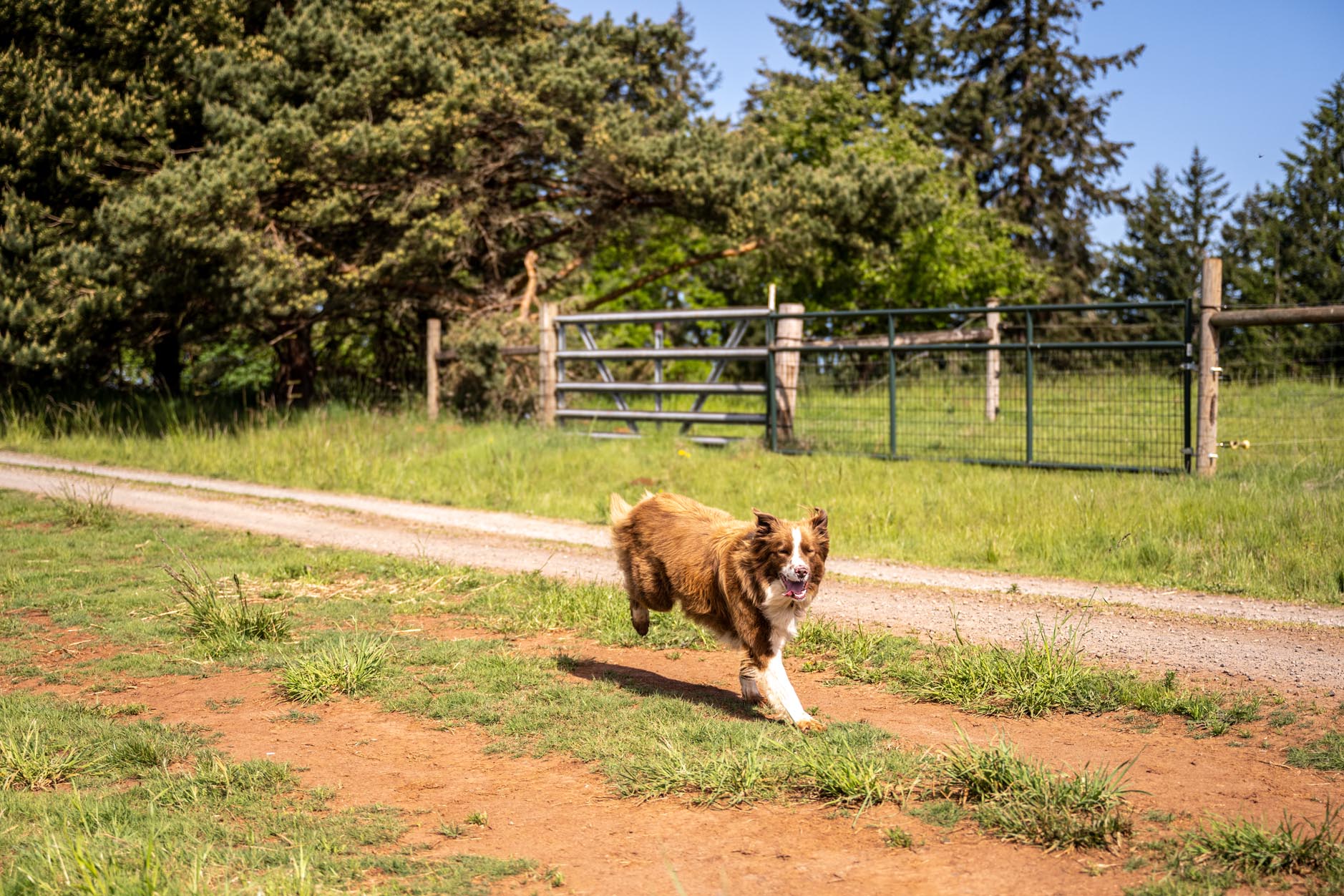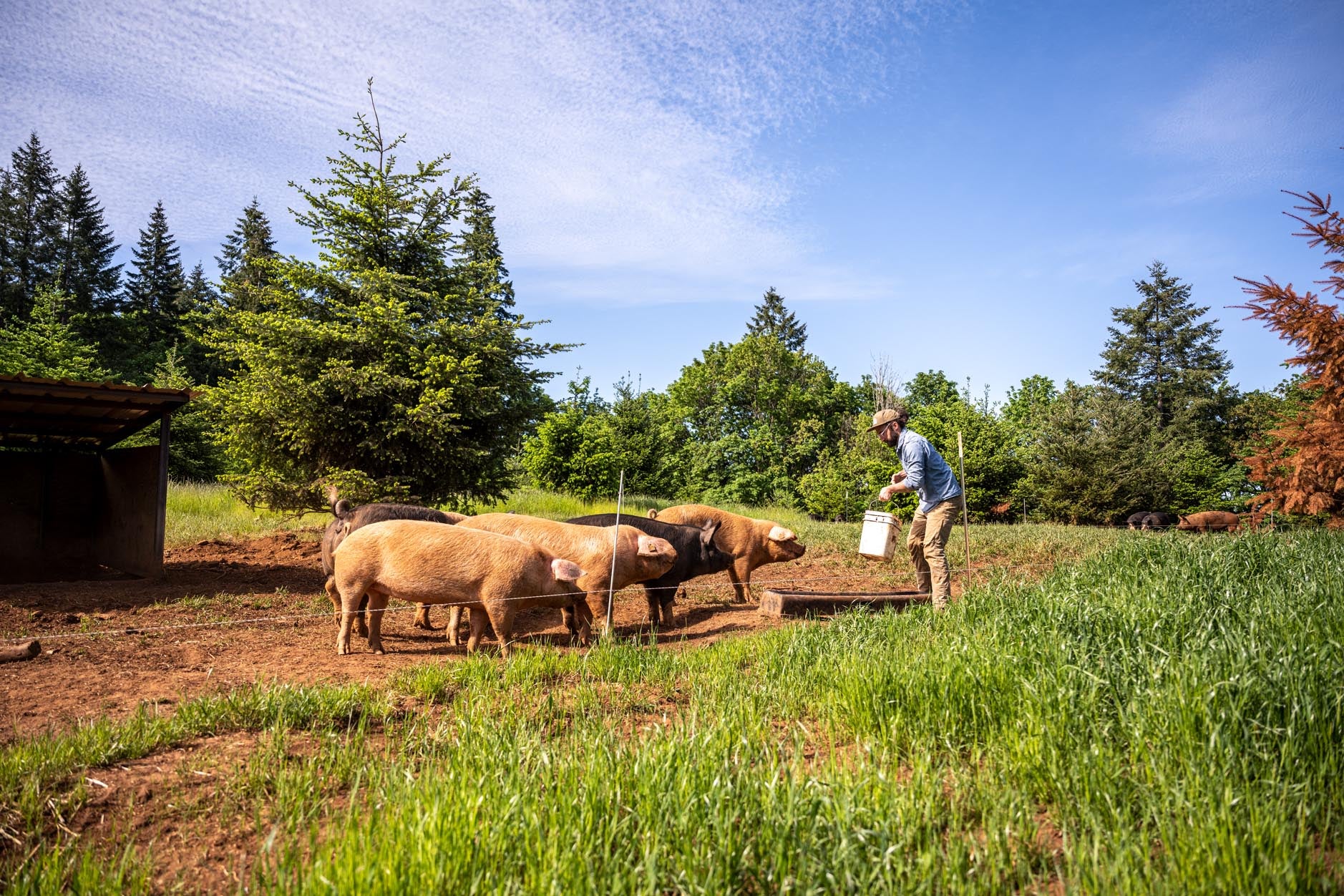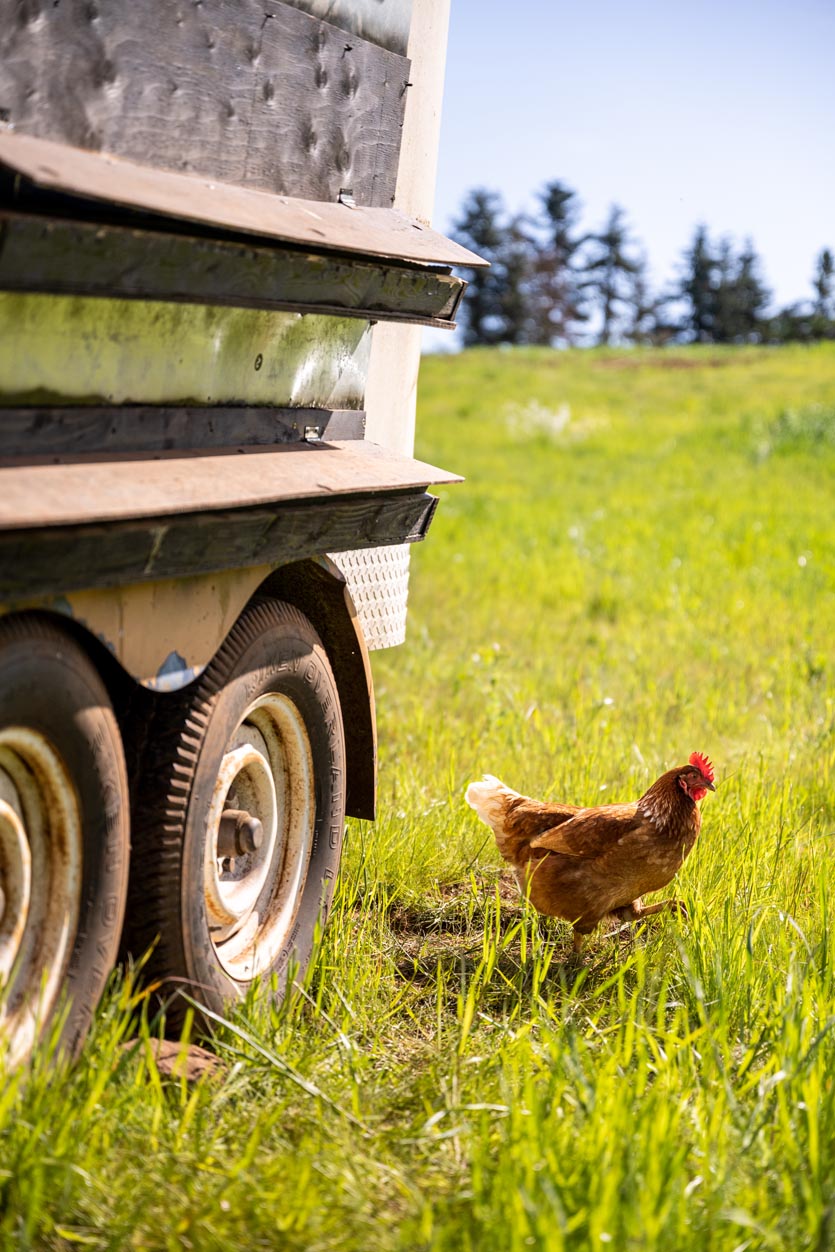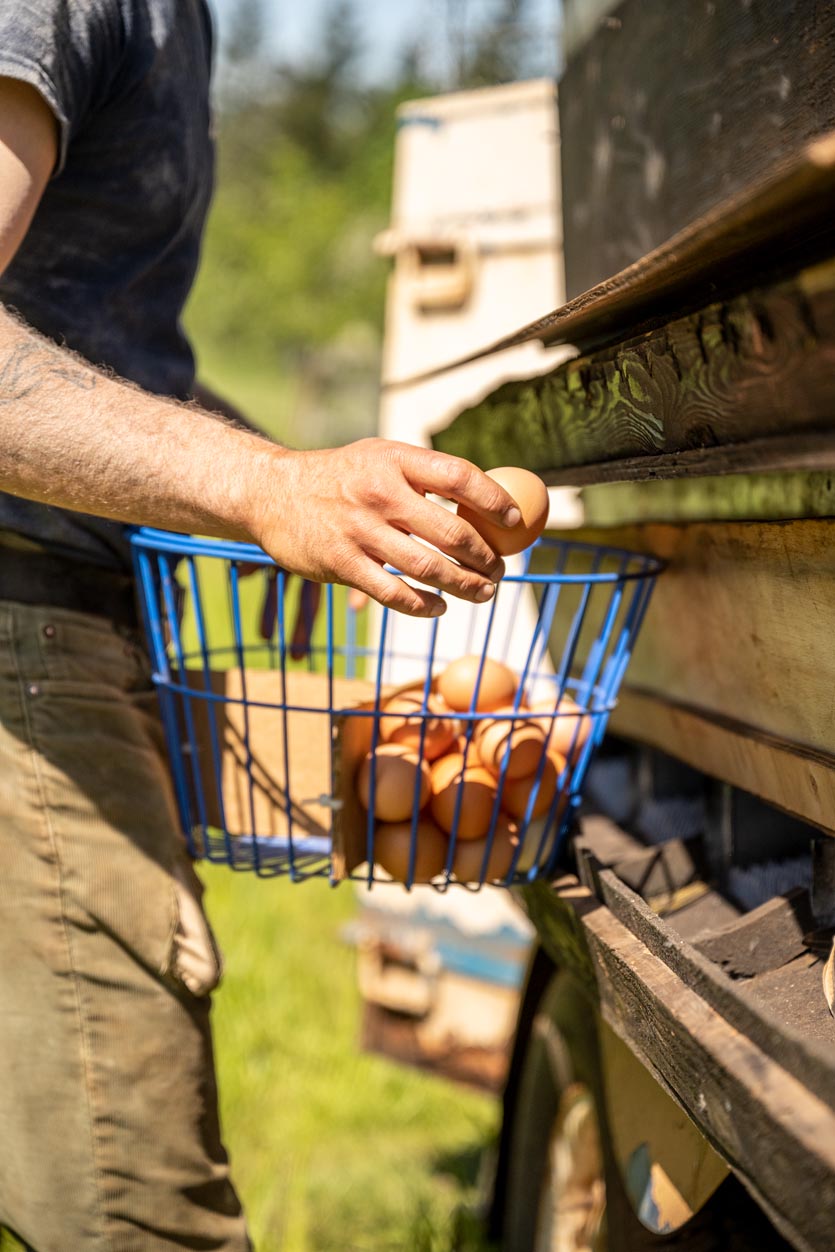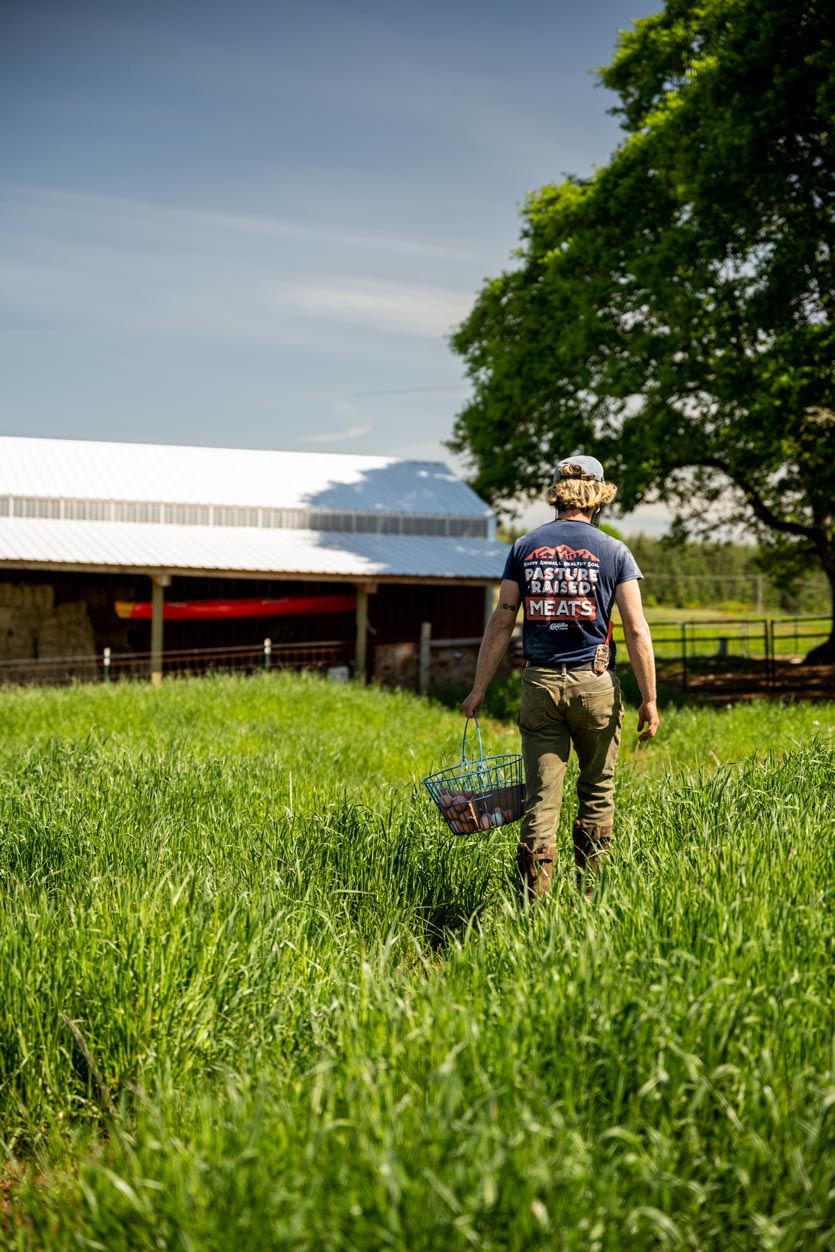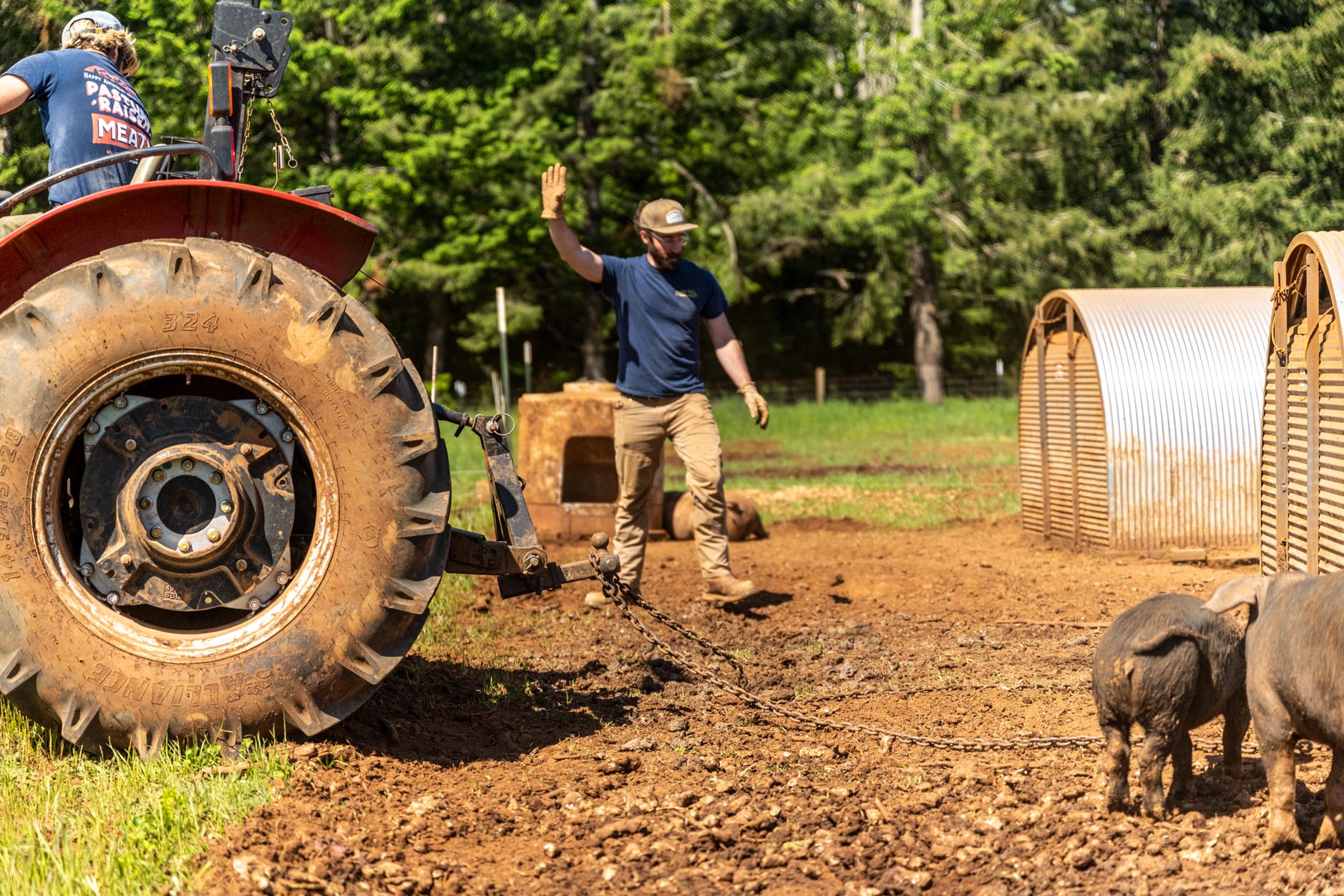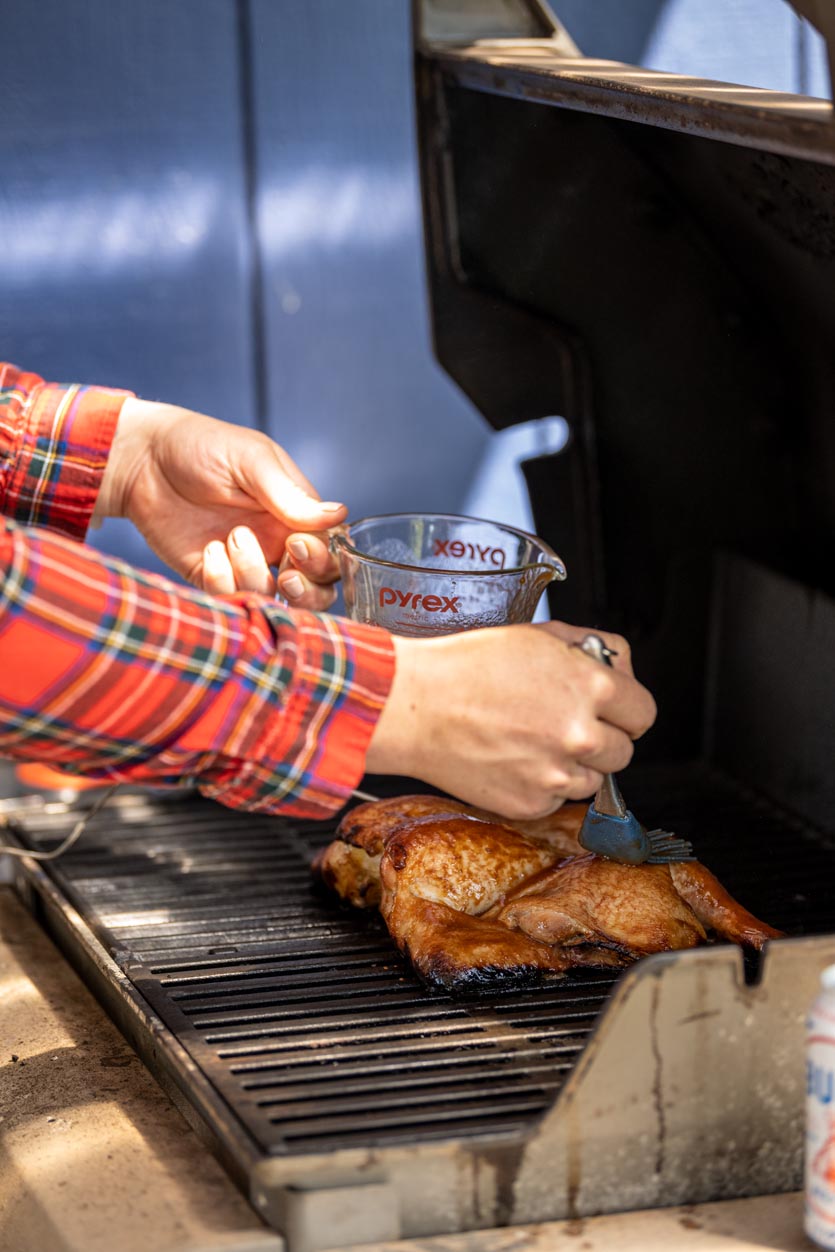Zach & Christina
We lived in New York City in our twenties and spent all of our free time and money learning about food, starting with dollar slices and restaurant jobs, finding our favorite farmers markets and halal carts and saving up for wine classes and fancy restaurants. Along the way, we started learning about the problems in modern agriculture and left our lives in New York to explore the world and see if we could be part of a solution.
We worked in vineyards and restaurants in New Zealand, on a large organic dairy in Spain, and a season-long apprenticeship at Fickle Creek Farm in North Carolina, trying to find our place in food and farming. The farmers' market and the dinner table have always been at the heart of what we do. They’re where we started our journey, where we connect with friends, learn and celebrate.
We moved to Oregon in 2014 and raised 20 pigs on our farm the following season. In 2021 we produced about 300 pigs, 2400 chickens, and 1000 ducks. Most of the meat we sell is to people cooking food at home and sharing with their loved ones.
We're on this wild ride with our sons Freddy and Hugo, who are big fans of sausage from “ours pigs.”
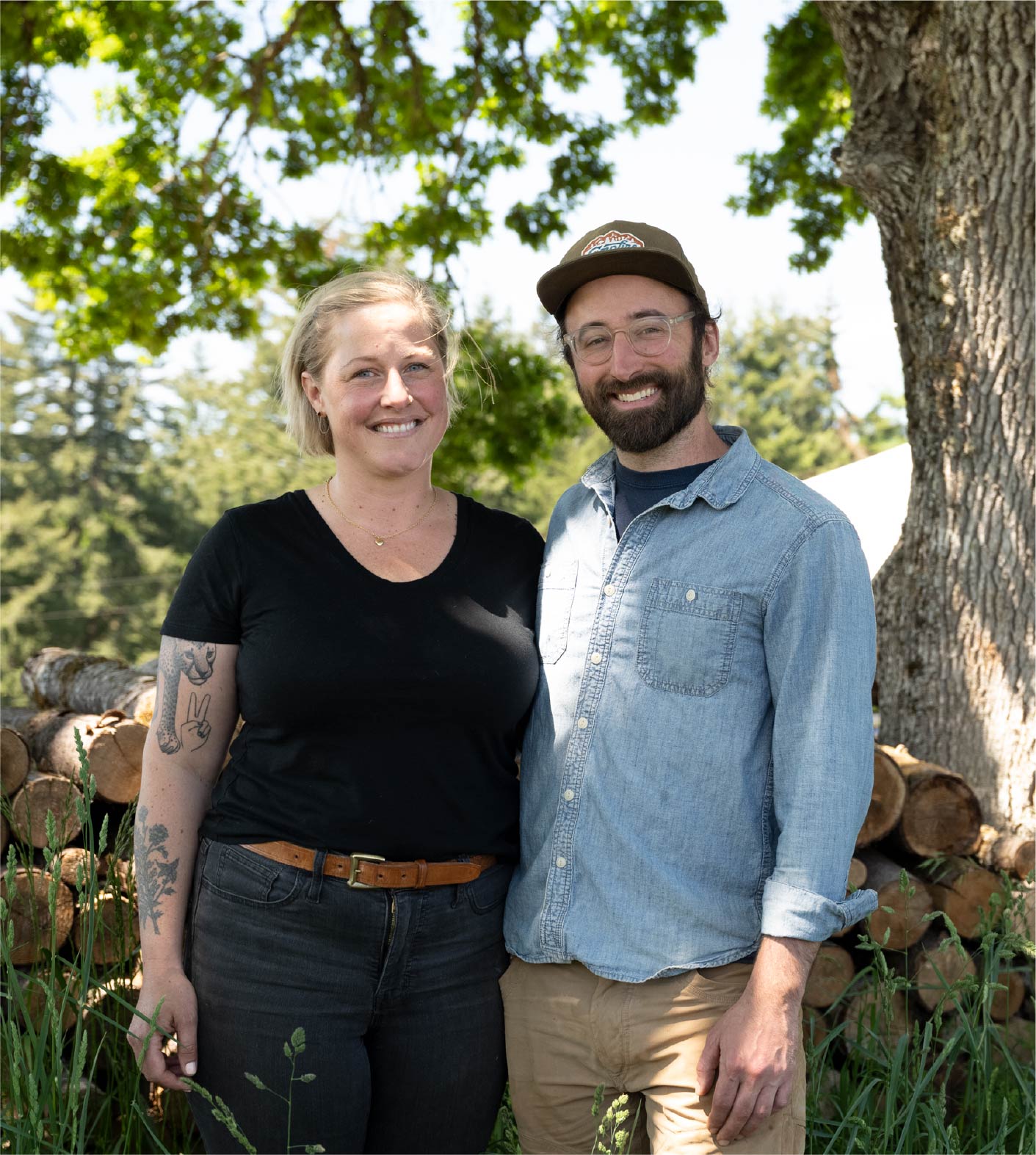

IT TAKES A VILLAGE. We've reached the capacity that our land base can support, but believe that although our model doesn't scale further here at the farm its easily repeatable elsewhere. That's why we started the Campfire Incubator Program in 2020.
Beginning livestock farmers that agree to raise their animals by our guidelines are mentored through their first few years, and we guarantee to buy their finished animals bring them to market. It's less than 10% of the product we sell, but its an important fraction of the work that we do if we're going to make a meaningful, durable difference.
We lend equipment, materials, expertise and time to support more farmers raising more animals sustainably, outdoors. We make regular visits to our incubator farms to ensure that our guidelines are being followed and animals are treated well. At the end of the day we're growing more good farmers, more animals are kept out of confinement, and more delicious, nutritious meat reaches your tables.
